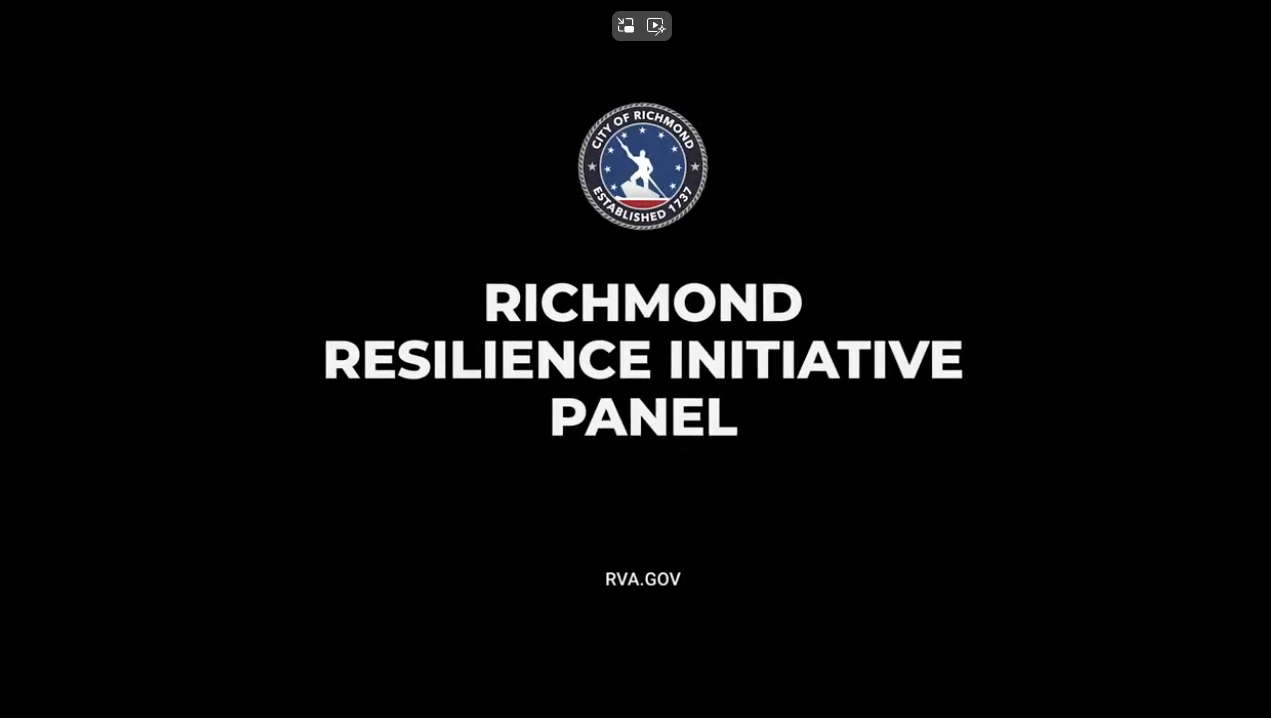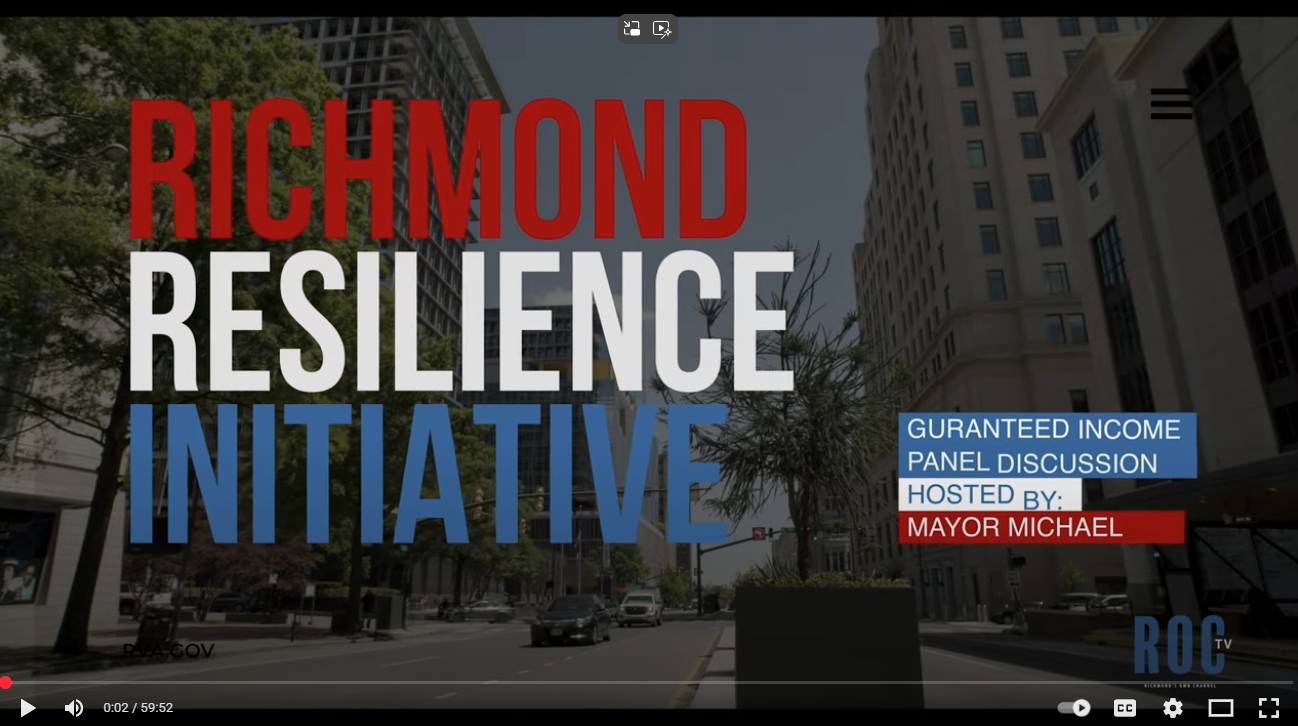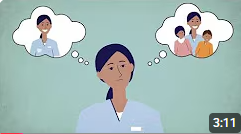Main Office
Richmond City Hall
900 East Broad Street, Suite 1502
Richmond, VA 23219
Office: 804.646.1639
Fax: 804.646.2321
Email: askocwb@rva.gov
Empowerment Center
701 N. 25th Street
Richmond, VA 23223
Office: 804.646.6464

RICHMOND RESILIENCE INITIATIVE
The Richmond Resilience Initiative (RRI), launched in 2020 under the leadership of Mayor Levar Stoney, is part of a growing national movement of guaranteed income pilots supported by Mayors for a Guaranteed Income (MGI)—a coalition of mayors across the country advocating for direct, unconditional cash payments as a tool for economic justice.
RRI provides monthly, unconditional income supplements of $500 for 24 months to individuals and families who earn too much to qualify for federal aid yet still struggle to meet basic needs.
As one of the many MGI-affiliated pilots, RRI reflects Richmond’s local commitment to addressing the financial instability created by the “Cliff Effect”—where a modest increase in income can result in the sudden loss of public benefits, ultimately leaving families in worse financial condition.
The initiative is led by the City of Richmond’s Office of Community Wealth Building, in collaboration with UpTogether and the City Treasurer’s Office of Financial Empowerment, which provides financial literacy education to participants.
By participating in the broader MGI network, Richmond contributes to a national evidence base that demonstrates how guaranteed income can promote financial stability, reduce stress, and create pathways toward long-term self-sufficiency—helping residents not just survive, but thrive.
The Cliff Effect refers to a situation where individuals or families lose access to public benefits (such as housing assistance, SNAP, or childcare subsidies) when their income increases slightly—but not enough to afford those exact basic needs without the benefits.
In essence, a small raise or new job can result in a net loss of financial stability, because the value of lost benefits exceeds the gain in income. This creates a “cliff” that complicates upward mobility and pushes individuals or families into a deeper financial crisis.
Why it matters:
Programs like the Richmond Resilience Initiative aim to counteract the Cliff Effect by offering unconditional cash supplements, helping residents transition to economic independence without the fear of losing critical support.
Watch the video to learn more about the benefits cliffs from the story of Leia, a hypothetical single mother of two children who lives in Miami, Florida (Federal Reserve Bank of Atlanta, 2024)
What are Benefits Cliffs? Leia's Story Click the image below or LINK to watch the video
During community panels, local leaders and participants in a guaranteed income pilot program shared how monthly payments of $500 have helped working individuals and families cover essential needs, reduce debt, and invest in their futures. Designed to address the “Cliff Effect,” the program supports those who earn above the threshold for public assistance but still struggle to make ends meet.
Speakers emphasized how the program fosters financial stability rather than dependency, and they advocated for its expansion alongside increased access to supportive services, including job training, affordable housing, and youth development opportunities. The event underscored the program’s broader goal: helping families move from surviving to thriving.
Click the following image or links to view.

RRI Participant Panel #1 at J.Sargeant Reynolds Community College

RRI Participant Panel# 2 at Byrd Theater
Derrick Wadley
Program Manager, Richmond Resilience Initiative
East End Career Station, 2nd Floor
701 N. 25th Street
Richmond, VA 23223
Office: 804.646.0986
Email: derrick.wadley@rva.gov
Gustarva Boone
Engagement Specialist, RRI
East End Career Station, 2nd Floor
701 N. 25th Street
Richmond, VA 23223
Office: 804.646.0992
Email: gustarva.boone@rva.gov
Karen Imes
Engagement Specialist, RRI
East End Career Station, 2nd Floor
701 N. 25th Street
Richmond, VA 23223
Office: 804.646.7004
Email: karen.imes@rva.gov








